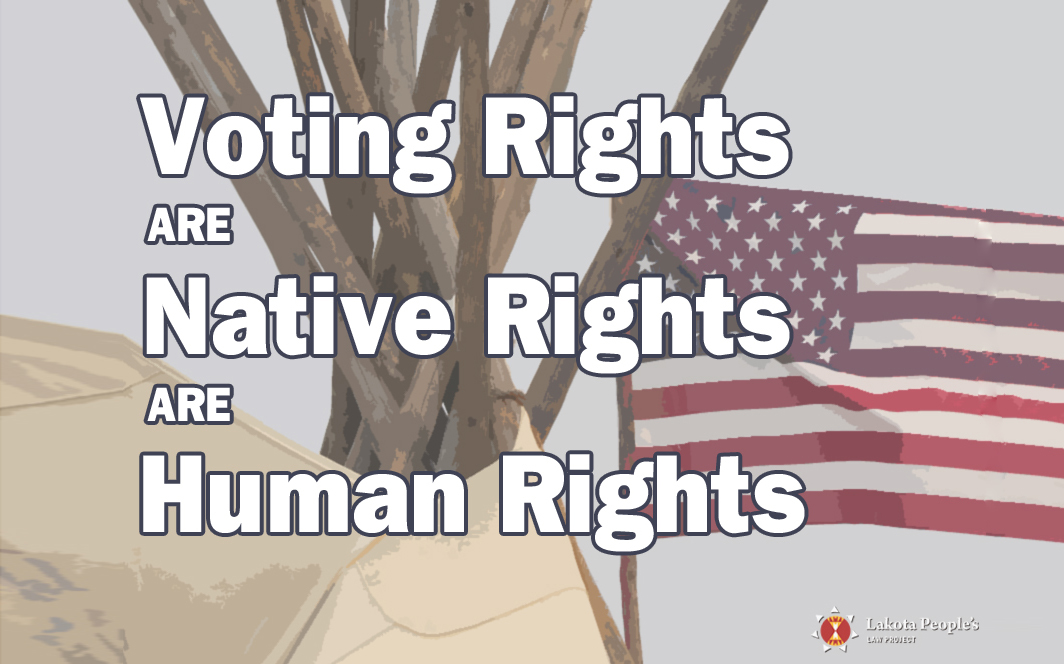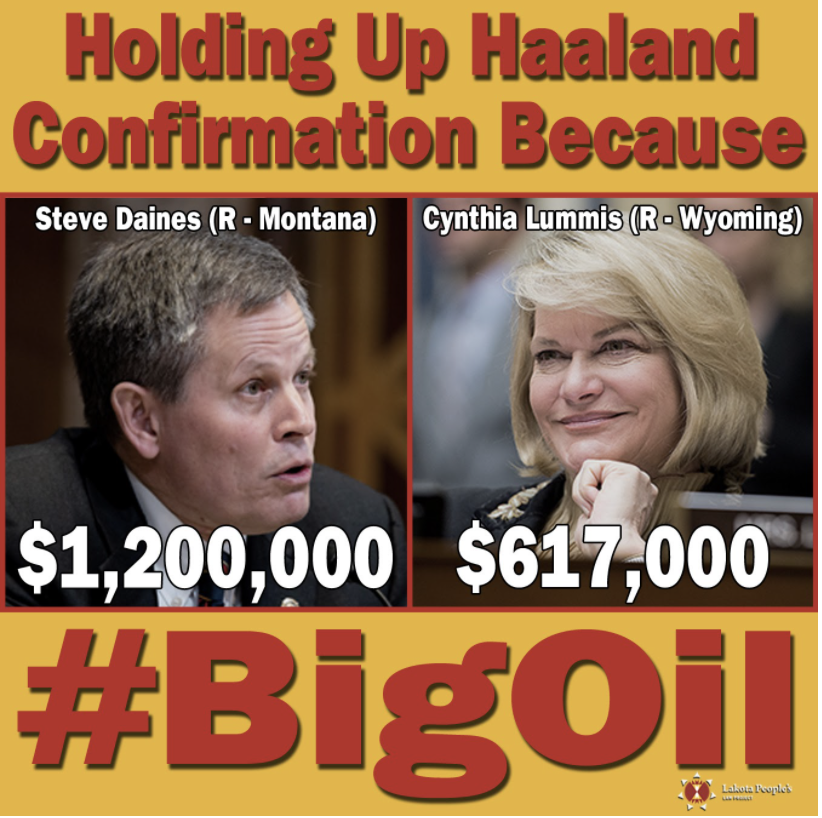
As you know, after the past election cycle, American democracy is in trouble. Not because of phantom issues with fraudulent voters, as some people would have you believe, but because far too many voters — especially those of color — continue to be discriminated against and disenfranchised through obscene voter suppression tactics. And that’s why the Lakota People’s Law Project is going to fight back in court.
We’ve joined a lawsuit — as a plaintiff — against the State of South Dakota. Because the state has consistently violated elements of the National Voter Registration Act, tribes like the Oglala and Rosebud Nations, organizations like us, and individuals like McLaughlin city council member Hoksila White Mountain have valid cause to sue.

The Native American Rights Fund (NARF) will represent the tribal entities in the suit. We hope the Standing Rock Sioux Tribe will also join as a plaintiff and seek monetary compensation from South Dakota for failure to offer voter registration opportunities in a way consistent with federal law.
Lakota Law and Hoksila, among others, will be represented by Demos, a legal organization dedicated to winning voting rights justice. This will be a true team effort, bringing a number of great legal minds and passionate people together to fight for the community and expose the state for its litany of abuses.
As an example, you may recall that we have already shared quite a bit about the troubles in McLaughlin, the Standing Rock Nation’s second largest town. Hoksila was kept from mounting a valid mayoral campaign, and he was only granted a promised vacant city council seat in his own ward after intense pressure you helped us create.
McLaughlin also has suspicious zoning, seemingly designed to prevent its Native residents from voting in local elections. So NARF will provide support as we undertake an effort to improve voting access within the town. As you can see, access for people of color is an issue on our reservations in the Dakotas, just as it’s a national and statewide problem in places like Georgia and Arizona. Bottom line: we must fight, right now and on every level, to protect our democracy from those who want to move it backward. We’re drawing a line in the sand — and I’m so grateful you’re standing with us for fairness.
Wopila tanka — thank you for helping us make good trouble!
Chase Iron Eyes
Co-Director and Lead Counsel
The Lakota People’s Law Project



